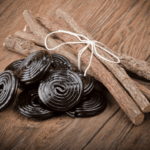Our skin is an instant and a brilliant reflection of our overall wellness. The skin color, texture, and quality are influenced by how our blood vessels, heart, and organs work.
If you belong to the dry skin group, your inner body and supporting nutrient intake have a role to play in it. A regular skincare regime does not cut the dry skin barrier for many people. If that is the case with you, vitamins and supplements for the skin can help you.
In a way, the vitamins that you intake determine the vitality of your skin. With the hectic lifestyles that most people experience today, one needs to identify their supplement needs. Supplements offer your body a chance to be replenished with nutrients that you might have been missing.
Here you will learn what vitamins and supplements are best for dry skin and improve the sensation of itchy and flaky patches.
1. Vitamin E

If you are looking for a super ingredient to bring relief to super dry skin, look no further than vitamin E.
People have been using vitamin E oil for decades to moisturize and repair dry or damaged skin. It works by restoring the appearance of lipids on the skin surface, which helps decrease water loss through evaporation.
Vitamin E can be particularly effective at helping to heal chapped lips and cracked hands.
You can also get vitamin E oil in topical form. However, many people take vitamin E capsules internally to improve their skin health and reap other health benefits, such as increased immunity.
For this reason, many skincare products use vitamin E to reduce scarring and wrinkles. A study also shows that vitamin E helps treat atopic dermatitis (eczema).
2. Vitamin A

Vitamin A is a fat-soluble vitamin that your body stores in its tissues. It plays a vital role in maintaining the functioning of your eyes, skin, and immune system.
Moreover, it may aid in treating dry skin conditions like eczema.
Vitamin A also helps fight the free radicals that cause the effects of aging. It helps to stimulate the production of collagen and elastin, which are essential for healthy and youthful skin.
3. Omega-3 Fatty Acids

Omega-3 fatty acids are a natural anti-inflammatory and can help nourish your dry skin. They moisturize the skin and help prevent flaking and scaling, which reduces the appearance of wrinkles.
You can find Omega-3 fatty acids in salmon, leafy vegetables, walnuts, ground flaxseed, and flaxseed oil. Many doctors also recommend taking a fish oil supplement to ensure enough omega-3s in your diet.
4. Vitamin D

Many people call vitamin D a sunshine vitamin. It is a fat-soluble vitamin that is helpful in the development of strong bones and teeth. It is essential for calcium absorption, helping to keep your skin soft and smooth.
Unlike other vitamins, your body produces its vitamin D when exposed to sunlight. You can also find it in certain foods, such as eggs and fatty fish, like tuna and mackerel.
If you are deficient in vitamin D, you may have dry skin. That might be because low levels of vitamin D decrease the rate at which your skin sheds its cells; this causes a buildup on the surface, which may lead to dryness.
Supplementing with vitamin D helps hydrate and nourish the dry skin of people with a deficiency.
5. Collagen

Collagen is a protein found in bones, cartilage, and connective tissue that helps maintain skin elasticity and youthfulness.
As you age, your body produces less collagen, which leads to the appearance of wrinkles, thinning hair, and other signs of aging. Taking a collagen supplement can help keep your body producing normal collagen levels, so you look younger for longer.
6. Probiotics

When you increase your intake of probiotics through food or supplements, your skin will be less vulnerable to dryness.
Probiotics are good bacteria that help balance out the bacteria in our guts, but they can do the same for your skin.
Foods that are rich in probiotics include yogurt, sauerkraut, kimchi, and some types of cheese. They are also available in supplement form at most grocery stores and natural health shops.
7. Vitamin C

A powerful antioxidant and anti-inflammatory agent, vitamin C can help reduce redness associated with dry skin. It is also impactful in increasing collagen production and strengthening blood vessels, making your skin look younger.
Also known as ascorbic acid, vitamin C is a water-soluble vitamin found in citrus fruits, vegetables, and whole grains. Since our bodies cannot store or produce vitamin C on their own, one must consume it through food or supplements.
Topical application of vitamin C can also be helpful. You can apply vitamin C serum directly to the skin.
8. Hyaluronic Acid

The primary function of hyaluronic acid is to help retain skin moisture to make it look plump and healthy. It accomplishes this by attracting water from the environment and dermis (the middle layer of skin) into the epidermis (the top layer of skin).
We lose moisture in our skin as we get older. However, there is another reason for dry and wrinkly skin: our ability to produce hyaluronic acid decreases.
One can take hyaluronic acid supplements topically or orally to treat dry skin. A topical application will provide the most direct effect since it acts as a humectant that draws water into the skin from the air. However, when applied topically to the skin, hyaluronic acid degrades.
Taking supplements can improve absorption by providing a more stable form of hyaluronic acid that penetrates deeper into the epidermis.
9. Zinc

Zinc supplements can help reduce the risk of developing dry skin because it helps balance out the production of sebum oil — an oily substance secreted by your sebaceous glands to prevent your skin from drying out.
It plays a vital role in collagen formation and provides skin strength and elasticity.
Zinc is available in many foods, so it is not difficult to incorporate it into your diet. If you want a quick fix for your dry skin, apply zinc topically or take supplements to increase the moisture of your skin.
10. Vitamin B

Vitamin B helps treat dry skin by playing a vital role in the body’s energy production and cell growth and development. A deficiency of vitamin B results in dry skin.
Vitamins are classified as water-soluble or fat-soluble. The eight B vitamins, also known as the B complex vitamins, are water-soluble and need to be replenished regularly through diet or supplements.
Although they have different functions, the B complex vitamins work together to keep the body healthy and skin nourished.
Conclusion
Dry skin is a common problem that can affect the whole body or just areas of it. The symptoms often get worse in winter, when the air is cold and dry. Fortunately, these vitamins and supplements can help you keep your skin hydrated.
We hope this guide is helpful to you. Keep checking this space for more such information.
Read: Dehydrated Skin VS Dry Skin: The Differences and Remedy





[…] Read: 10 Vitamins and Supplements That are Good for Dry Skin […]
[…] Read: 10 Vitamins and Supplements That are Good for Dry Skin […]